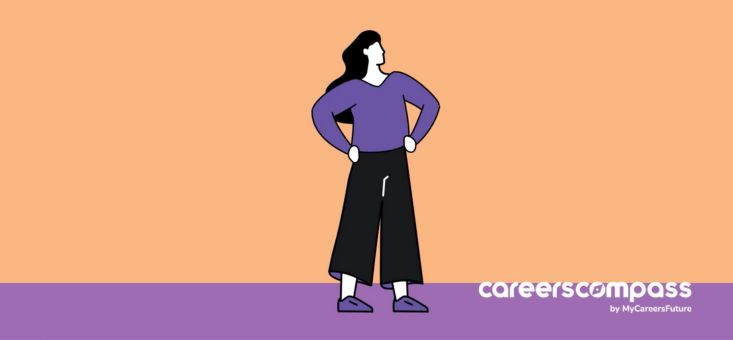Watch This Video Now!
Some people may be naturally more confident than others, but confidence is something that can be learnt over time. It plays a crucial role in our professional lives and goes a long way in helping us attain career success.
Having confidence makes you more motivated and less stressed. It also impacts our ability to achieve our goals and adapt to setbacks that come our way. When we are confident, we’re more likely to excel, take on challenges and approach new perspectives.
So how can you boost your career confidence and self-belief at work? We outline five ways you can try.
1. Learn new skills
Continuous learning can contribute to building confidence at work. Acquiring new skills enhances your capabilities while increasing your productivity. To make sure you’re aligning your skills with your career goals, take a look at your strengths and areas of improvement to decide what learning opportunities you should invest your time in. Sign up for relevant courses and workshops, or seek mentorship from experienced professionals. You can even network with others from various industries to expand your knowledge horizons. Seeing yourself progress can naturally grow your confidence levels.
2. Set goals for yourself
Setting clear and achievable career goals can significantly boost your confidence. Identify a skill you want to develop and then break it down into bite-sized, manageable goals. Then track your progress and celebrate each milestone you achieve, no matter how minor. This sense of accomplishment will not only increase your confidence but also motivates you to achieve more.
3. Focus on your strengths
Recognising your strengths and leveraging them in your job can greatly enhance your confidence. Make a list of your skills and abilities, then think about how you can incorporate them into your work. Seek opportunities to apply your strengths in your role or volunteer for projects that allow you to tap on them. Playing to your strengths can help you to excel.
4. Consider volunteer work
Volunteering has many great benefits for your career. It allows you to contribute to a cause you’re passionate about while also allowing you to develop new skills and expand your network. Sign up for volunteering opportunities organised by your company or local town council and find roles that align with your interests and skillsets. Volunteering can also provide you with unique perspectives to enhance your self-belief.
5. Take breaks
Taking a timeout once in a while allows you to recharge and reflect. This helps you to refresh your mind and improve your well-being, which then improves your confidence. Take a breather and find the time to engage in activities you enjoy, away from your daily grind. Regular breaks allow you the space to think of ways to improve yourself and your mental wellness, so that you can manage your stress levels and maintain positivity to better build your confidence.
Building confidence is a journey that requires commitment, but the benefits far outweigh the effort. With increased confidence, you’ll be better able to push your career forward.















